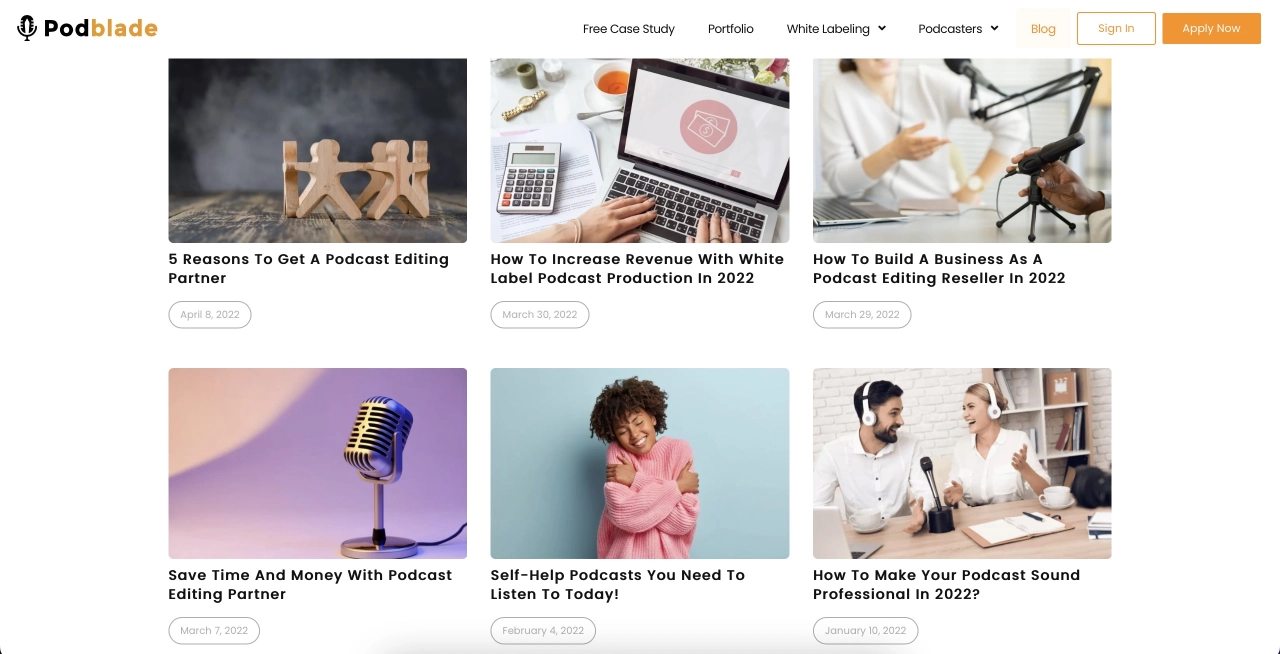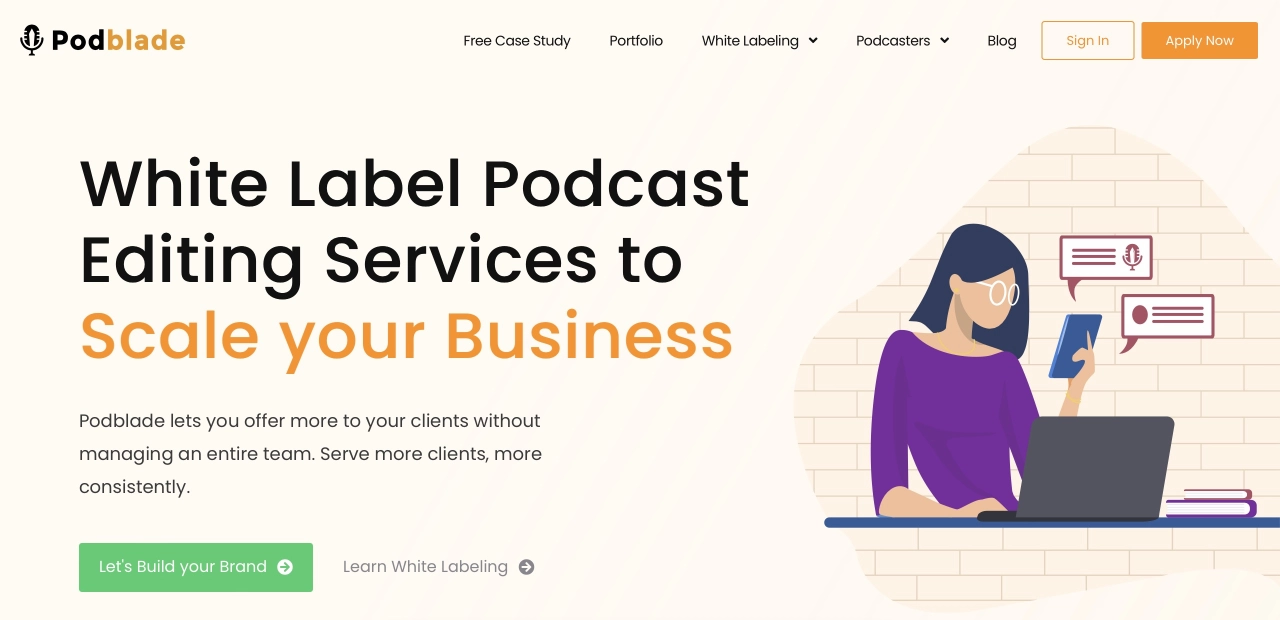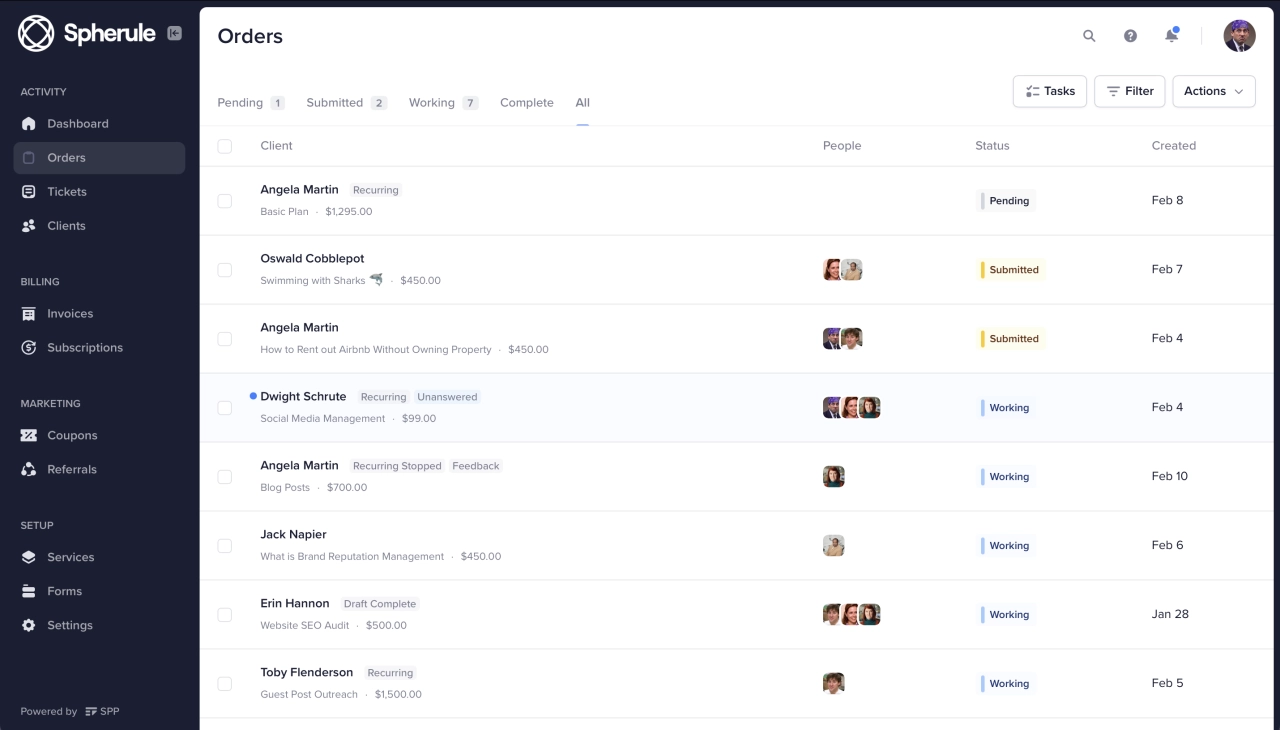We’ve talked to Rom Raviv from Podblade about their journey to a blue ocean company. Read on to find out how they leveraged the SPP reseller module to set themselves apart from other podcast editing companies.
The struggle to manage everything
Podblade started out like many other agencies, by using tools such as Google Drive and Dropbox for file sharing, as well as Gmail to communicate with clients and their team. Without any order numbers, it was hard to keep track of episodes to edit as that service requires many files to keep track of.
Since their transition to Service Provider Pro, everything is now in one place, saving hours of time and delivering a better client experience. This is thanks to the fact that everything is easily accessible: files, orders, payments, communication, which leads to a more professional look for Podblade.
Turning into a blue ocean company
While using a client portal software made things easier for Podblade, they were still swimming in a red ocean (see “Red Ocean Traps” by W. Chan Kim & Renée A. Mauborgne), competing with other podcast editing service providers. They quickly realized they had to dive into a blue ocean without competition, and strive away from the B2C podcast editing world.
Their current flow already included sales calls. However, revenue wasn’t always high, as some calls lead to sales between $100 and $500. Podblade changed their strategy and started focusing on the B2B niche so they wouldn’t have to compete on price with other podcast editors. This led to them searching for companies they could partner up with for white label podcast editing.
Onboarding partners into SPP
Podblade has (at the time of this interview) 25+ partners. To get them onboarded, a phone call is necessary to explain the setup, benefits, as well as general procedure. Potential partners can then use the trial period to see the benefits of using this white labeled solution.
If they agree to come onboard, the setup is done for all partners. Podblade links their accounts via the reseller module, and begins the setup. This process takes about 2 weeks in total to make sure everything runs smoothly.
To make the transition period to the new system easier, they created an FAQ page and a series of videos in a demo portal so that the videos can be reused for each partner.
Offering services to ideal partners
While setting up their new white label business, Podblade has thought about which service companies to team up with. Their ideal partners are active in three niches.
Podcast editing companies who are already editing podcasts. They still need to be educated about the benefits of using a white label partner as they often don’t see the benefits.
Podcast coaches who only offer a coaching program but not editing. Podblade pitches editing services to them and makes them aware of the benefits. This often leads to coaches adding podcast editing to their existing offers.
Marketing/Content related agencies who are not thinking about podcast editing. They also need to be educated and shown the benefit of offering this service.
What all three have in common is that they create the perfect relationship with Podblade: they bring in sales while Podblade takes care of the fulfillment.
Finding new partners via SEO
We asked how a podcast editing company like Podblade generates leads, and Rom mentioned that it's mostly through their SEO efforts. Keywords such as “podcast reseller” or “white label podcast editing” might have a low search volume, but the keyword intent is clearly geared towards a purchase. Another benefit of targeting such keywords is that the services are recurring–and we’ve talked about their benefits already.

Another interesting point Rom makes is that their general outreach wasn’t too successful. It’s hard to educate leads on the benefits of using a white label partner. Some of them sign up for a trial, but never make use of their workspace afterwards. This lead Podblade to focus more on leads that have actively searched for their editing services instead.
Taking care of active partners
As previously mentioned, Podblade onboards their partners and sets up their workspace for them. To make sure they remain happy, they’re also invited into a Slack channel where they can ask questions.
Podblade has also established a quality assurance system that they’ve optimized over the last few months. In the beginning, editors used to send files with small mistakes. Now they have to go through a list of potential issues they might encounter, and fill out the self-analysis form. On top of that, a full-time quality assurance manager has joined the team. They make sure that each edit is correct before its sent to the client.
Integrating a client portal with your website
Lastly, Rom shares a few tips on how to integrate the SPP client portal with an existing website. The most important point being a login button in the top-right corner for easy access.

Podblade has also linked their order forms with buy buttons on their website to make the checkout seamless and easy.
While some service providers also have a sign up button on their website, Rom mentioned that it would confuse their partners. They have to go through an onboarding call that leads to the account creation, so Podblade decided against a sign up button.







